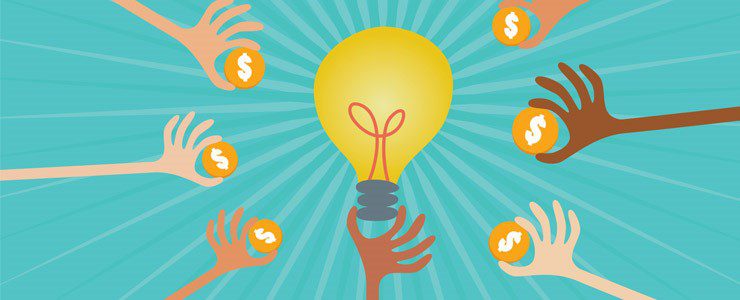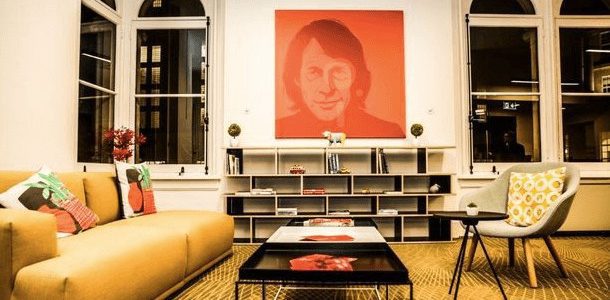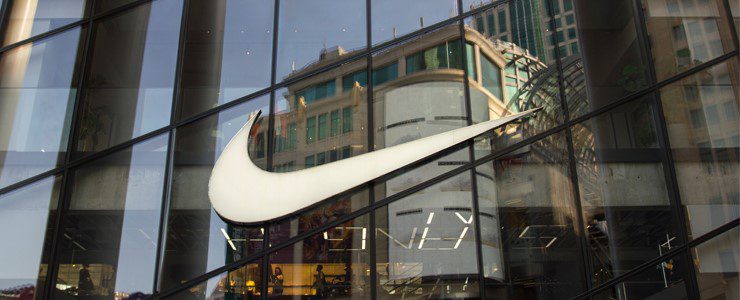![Headspace-26-Jan-Rohane-Hamilton-Shutterstock.com1_[1]](https://www.headspacegroup.co.uk/wp-content/uploads/2021/01/Headspace-26-Jan-Rohane-Hamilton-Shutterstock.com1_1.jpg)
How a business ‘close to being dead several times’ sold for $2.1bn
Google recently purchased leading wearable fitness brand Fitbit for $2.1 billion. The acquisition continues the success story of Fitbit co-founders James Park and Eric Friedman – who started out in 2007 with just an idea using wireless technology and sensors.
The EU approved Google’s acquisition in late December, more than a year after it was first announced. Park, Fitbit’s CEO, said the brand would continue to make products that work with both Android devices and iPhones.
In the years since the company was founded, with the original Fitbit tracker first going on sale in 2009, the product is now available in more than 100 countries. More than 120 million devices have been sold globally, with users having taken and logged 275 trillion steps and 15 billion hours of sleep!
Where did Fitbit begin?
Park, aged 43, studied computer science at Harvard College but dropped out to follow an entrepreneurial path. Friedman, 42, graduated from Yale University in 2000 and became a founding engineer at Park’s start-up, Epesi Technologies. Together, they founded Windup Labs in 2002, later selling it to CNET. Both ambitious and forward-thinking, they recognised technology as the way ahead. Friedman once said, “Part of being an entrepreneur is you’re eternally optimistic.”
This was the case when they founded Fitbit in 2007, as they later admitted they had little more than “a circuit board in a wooden box” when they did the initial rounds of potential investors. The idea was to “inspire and motivate” people on their “journey to better health”, according to Park.
Recognising a gap in the market for small, wearable, fitness devices, they decided to develop it further, even though neither of them had any manufacturing experience!
Business development
In September 2008, they addressed the TechCrunch 50 conference, ambitiously hoping to attract 50 pre-orders, although realistically, they felt the actual number may be around five. However, demand exceeded all expectations and they received 2,000 pre-orders in one day.
They had raised $400,000 to develop the product but had no experience in manufacturing the devices. Other challenges presented themselves too, such as fixing a basic design fault. Park recalled literally taking a piece of foam and attaching it to the circuit board to fix an antenna problem.
They spent three months in Asia looking at suppliers and production lines and said the business was “close to being dead several times”, but they never gave up.
After many blips along the way, Fitbit finally launched its tracker late in 2009. Their first shipment was for 5,000 units and there were already another 20,000 orders on the books. Fitbit sold its product directly to consumers, so it had good profit margins, but the company needed a bigger partner to make and sell more.
Obtaining more funding through venture capitalist Brad Field, they teamed up with Best Buy to sell the Fitbit in first four and then 650 retail stores. Today, Fitbits are sold in thousands of retail outlets across the world.
Key to success
The key to Fitbit’s success is the continual investment in new models. While the first tracker was innovative, Fitbit upgraded it in 2011 by adding a digital clock, an altimeter and a stopwatch, calling it the Ultra. In 2012, the Fitbit Zip and Fitbit One became the first wireless fitness trackers to use Bluetooth Smart and Bluetooth 4.0.
The Fitbit One measured distance, steps, floors climbed, calories burned and sleep patterns. The Zip measured distance, steps and calories. Both synced to Android and iOS phones and the Fitbit website.
In 2013, the Fitbit Flex was launched, followed by the Charge in 2014 and the Charge 2 in 2015. The ability to move forward and adapt has been one of Fitbit’s main strengths in the highly competitive tech market.
Who are Fitbit’s competitors?
The many Fitbit competitors include Athos (also known as MAD Apparel), who develop apparel that measures muscle activity data. Other tech giants aiming to increase their share of the market include Apple, LG Electronics, Samsung, Fossil Group and Garmin, to name but a few.
Fitbit has remained in the top five tech brands in the world since its launch, according to a report released in December 2020 by the International Data Corporation. The global digital wearables market grew by a hefty 35.1% year on year in the third quarter of 2020 to 125 million units. This can be partly attributed to the Covid-19 pandemic and more people being at home trying to keep fit.
Google acquisition
Announcing that Google had bought Fitbit, Park said the deal was about “devices, not data” – a sentiment echoed by Google’s Rick Osterloh. This referred to the two brands’ pledge to keep Fitbit users’ health and wellness data private. It will never be used for Google ads and will remain separate from all other Google ads data.
Park also spoke of his pride that Fitbit’s mission to transform people’s lives had never wavered from the outset. He said in some cases, they had heard from users who said Fitbit had actually helped to save their life.
Fitbit was founded with a “simple but bold idea” to help make the global population healthier. Becoming “part of the Google family” was just the beginning of doing more to inspire and motivate people on their journey to better health, Park added. The acquisition will enable the brand to “innovate faster, provide more choices and make even better products” to support people’s health and wellness needs.
“On our own, we pushed the bounds of what was possible from the wrist – pioneering step, heart rate, sleep and stress tracking,” he said. “With access to Google’s incredible resources, knowledge and global platform, the possibilities are truly limitless.”
Currently, Fitbit’s most advanced product is the Sense fitness watch, released in September 2020. It has added a host of new features to track your health, such as skin temperature sensors and an updated heart rate sensor. It also has a longer battery life than Apple and Samsung watches.
It isn’t yet clear how Fitbit will change under Google’s ownership, although early indications are the brand will be distinct from Google. Forbes estimates both Park and Friedman each have a net worth of $660 million today.
Foster your entrepreneurial spirit by renting flexible and inspirational coworking space from Headspace Group. It’s time to push those boundaries!
© Rohane Hamilton / Shutterstock.com



